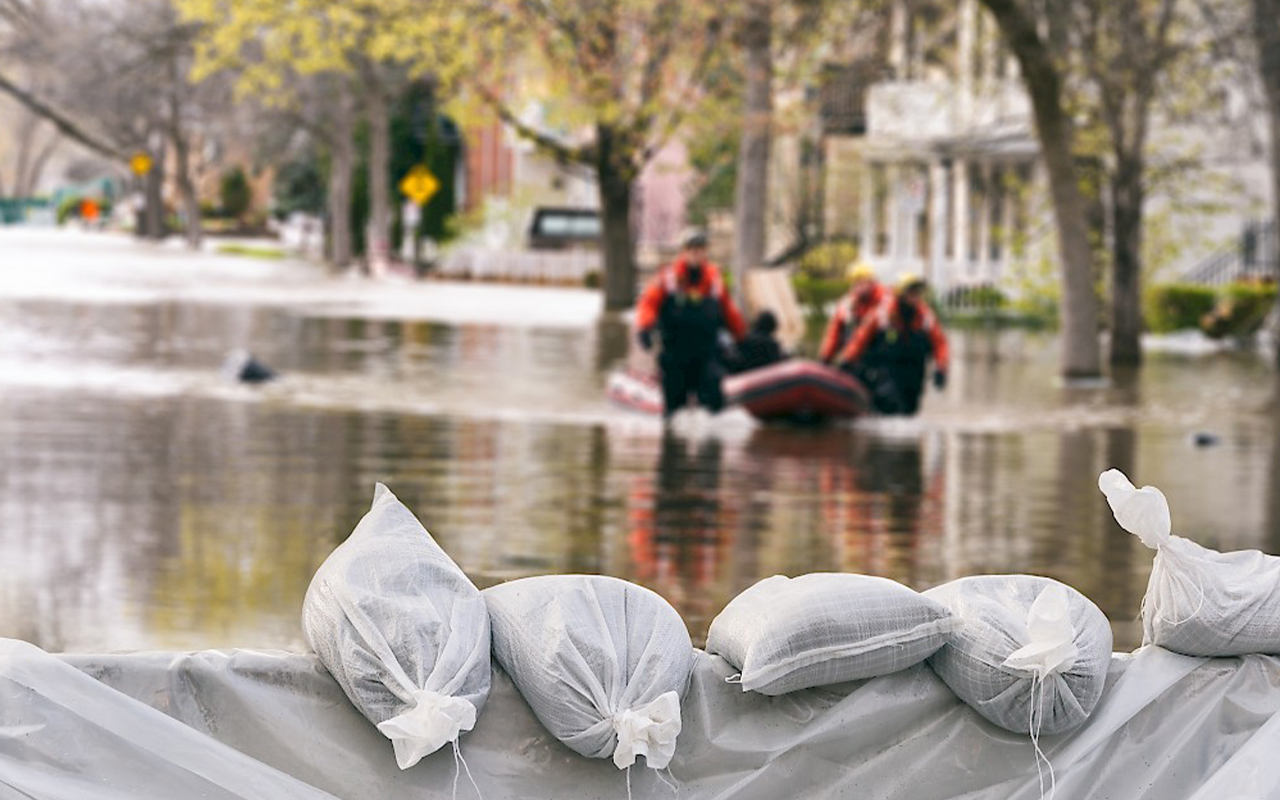Emergency management is a complex, collaborative network of agencies, levels of government, nonprofit organizations, and volunteers coming together following a disaster. In addition to general plans and practices that can be applied to many emergency responses, some emergencies require more specialized training that may not be available in every jurisdiction. Swift water rescue teams are assets that may be needed now more than ever.
Most emergencies require a certain level of specialization to effectively manage the scene. Medical or traumatic emergencies, for example, may require the specialization of a paramedic or a flight team based on the seriousness of the traumatic or medical emergency. In other instances, specialization of a scene may include rescue techniques such as technical large animal emergency rescue to rescue a large animal in distress. Among the numerous specializations that a public safety agency may have, swift water rescue is, perhaps, one of the most important areas of training as it can significantly help in numerous types of emergencies.
Many fire departments across the United States have individuals trained in water rescue at their departments. According to Rockingham County, Virginia, swift water rescue teams can respond to “surface water rescue, flood water rescue, search operations on or near waterways and small boat operations.” During the right types of emergencies, these techniques are essential to managing the emergencies. Considering the types and frequencies of large-scale disasters that have occurred in the past few years with hurricanes and other major flooding events, swift water rescue is a specialization that is critical to emergency management efforts.
Balancing Needs With Costs
Emergency Medical Services (EMS), an essential public safety component at the local level of government provides the immediate care and transportation of sick and injured patients. This area of public safety often experiences numerous budgetary issues throughout the country. In an effort to condense funds, some jurisdictions have moved EMS agencies into fire departments to help bring together these two critical areas of public safety together.
It appears, though, that swift water rescue teams have even more of challenge than EMS. Most jurisdictions only offer swift water rescue teams if they already have the budget for them. According to a 2011 article written by Battalion Chief Trixie Lohrke of Dallas Fire-Rescue, “Special operations teams [like swift water rescue teams], are comprised of highly trained members with advanced skills that come at a high cost to fund and operate.” Like so many other sections of emergency management, it can be particularly costly to train an entire department – only to have personnel leave for positions at other public safety agencies.
However, not every jurisdiction can afford such specialized training teams, especially for low-frequency teams. This only adds to the strain felt by other rescue teams. As a result, some municipalities have difficulty justifying the expense to create, train, and manage such teams. For example, in Bakersfield, California, where search and rescue teams have limited funding, volunteers provide most of the funding and effort to maintain the team and assist during emergencies.
According to a 2009 article written by Gerald Dworkin, an expert and instructor in swift water rescue, “The Keene Fire Department first identified swift water rescue as a low frequency/high risk incident type in the Spring of 2000 when they were confronted with a motor vehicle incident involving a vehicle, with an ill and injured trapped victim, in the middle of a fast moving river.” Dworkin continued to explain, “Although the department had training and equipment to respond to cold water and ice rescue incidents, they had no training or equipment for response to swift water rescue incidents.”
As with other specialized emergency management teams, swift water rescue is an asset to any public safety department and is ultimately needed for numerous types of water-related emergencies. Some departments with stronger budgets or those having a regular need for swift water rescue may have their own teams, with individuals from the department designated to handle such types of emergencies. For example, Blacksburg, Virginia, has the Blacksburg Volunteer Rescue Squad has a Swift Water Rescue Team.
At the state level, swift water rescue teams incorporated into task forces can assist jurisdictions during water emergencies. During Hurricane Michael in 2018, teams from Maryland and Virginia deployed to assist public safety agencies working the hurricane emergency. Swift water rescue teams from across the country are often deployed to help manage emergencies during hurricanes or other large-scale emergencies that incur excessive flooding. Because of debris and other items that can be in the water, teams trained in swift water rescue are essential because water can move surprisingly fast under numerous types of conditions.
A Versatile Asset for Both Small-Scale & Large-Scale Incidents
Although swift water rescue teams are used nationwide for serious flooding emergencies, such teams are not in abundance because of the notion that most municipalities would not regularly need them, nor can they afford them. These teams, however, are critical to local government municipalities and can be utilized in a number of different emergency scenarios. For small-scale emergencies, these teams are ideal because they provide a lot of skill behind a rescue – an issue that allows a team to effectively maintain and manage the scene.
As climate change continues to shift, the need for swift water rescue teams will continue to change. It will become particularly important for local governments to have a swift water rescue program – especially for managing mutual aid agreements when small-scale emergencies become too much for any one jurisdiction to handle. Like many other sectors of emergency management, local officials must review their needs carefully to consider whether they can justify creating a swift water rescue team. With increasing frequency and severity of flood events and water-related emergencies over the past few years, perhaps the expense is now warranted despite already tightening budgets.

Allison Knox
Allison G. S. Knox teaches Emergency Management & Fire Science at American Military University, and is an emergency medical technician with research interests in emergency management policy.
-
Allison Knoxhttps://www.domesticpreparedness.com/author/allison-knox
-
Allison Knoxhttps://www.domesticpreparedness.com/author/allison-knox






